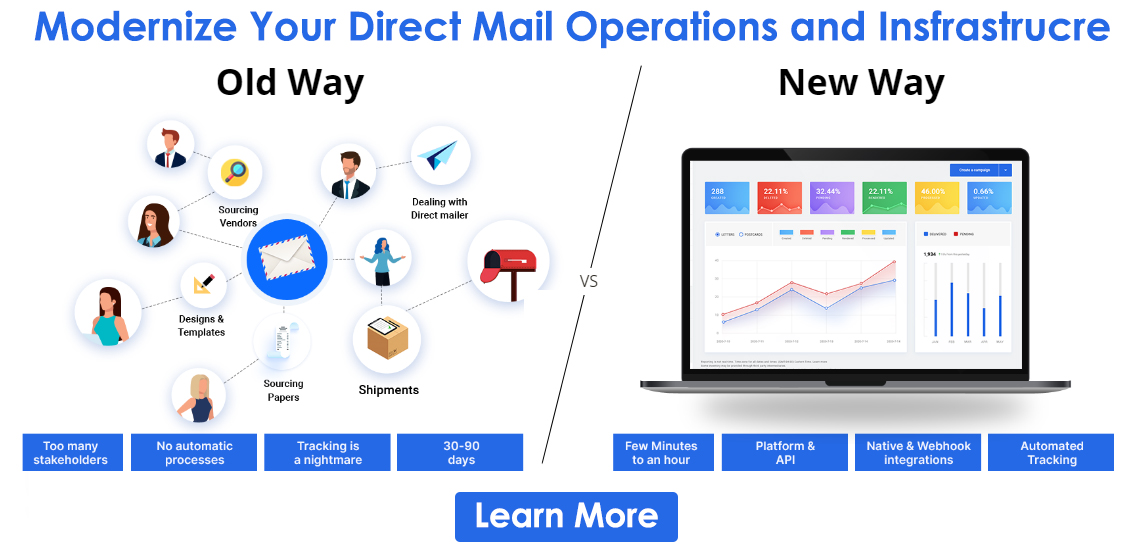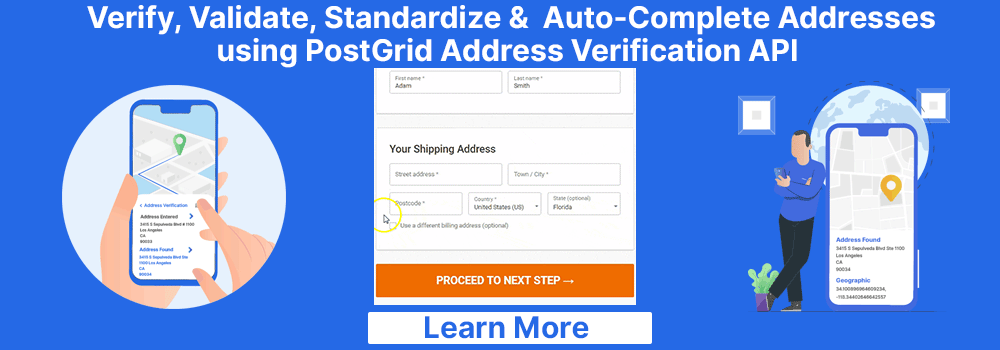
Fuzzy Address Searching: Top 10 Use Cases to Benefit Your Business
Your customers might enter incorrect delivery addresses on your website! Can you change that? No!
But can you take the necessary steps to find errors and correct the information? Yes!
It helps you function better and access high-quality data for your business. One solid solution to detecting incorrectly-entered addresses is fuzzy address searching.

This mechanism lets you modify typos, spacing issues, incorrect abbreviations, and misspellings.
It can convert old, outdated, or invalid databases into accurate, cleansed records. Thus, you can use them for marketing, shipping orders, and overall customer communications.
It’s a win-win, right?
But what is fuzzy address matching, and how does it work?
You may ask about its benefits and applications and how to use it.
Hence, we have compiled this guide to help you understand everything about fuzzy address matching and related concepts.
Let us dive right in!
What is Fuzzy Address Searching?
Before getting into fuzzy address searching, let us discuss what an address match means.
Finding an address match means getting the exact data value in a database. For example, imagine comparing your previous year’s records with this year’s. If you enter “J Gillies,” you can only find a match if your last year’s database also has the same name.
What if your previous databases have an entry for Jason Gillies? It won’t show up as a match! Thus, it can make finding records challenging and pile up duplicate entries in your system.
Hence, companies use fuzzy data matching to dive deeper into their systems and get accurate results, irrespective of minor errors.
A fuzzy address-matching system works the same way as data matching. But it looks for your customers’ and prospects’ delivery addresses instead of names, phone numbers, or email addresses. It aims to cleanse your mailing data and let you ship items to the correct destinations.
Traditional address searching considers correct and incorrect matches. There is no scope for finding similar records to help you organize your data. Thus, more businesses are adopting fuzzy address searching to resolve this problem.
Using fuzzy address-searching solution, you can leverage advanced AI-powered algorithms to find and differentiate between address records. It is ideal for searching records even with spelling errors, incorrect abbreviations, and other mistakes.
What Is Fuzzy Logic?
We often mention fuzzy logic when speaking of address matching or verification. At PostGrid, we get many questions from clients, like, “What is fuzzy logic?” and “How does it work?”
Here is a simple answer:
Fuzzy logic is a technique to determine values falling between 0 and 1. You may see it as finding a data record between the standard true and false.
Some of our clients were surprised to learn many similar address records exist between 0 and 1. Every record is crucial for conducting fuzzy address searching to ensure the most accurate outcomes. It helps you not miss any information and reduces false negatives.
In other words, fuzzy address searching considers all possibilities before judging your database’s accuracy. Some customers may have made typos when inputting their addresses on the contact form. Or maybe your sales team used incorrect formatting to enter the records in your CRM.
The good news is that fuzzy logic can identify and correct errors before telling you whether an address entry is valid. You can set a tolerance limit, say 0.8.
So, if your address is 80% correct, the system can make corrections and make the address usable.
PostGid’s address verification API uses fuzzy address matching to help companies save time and get accurate results instead of managing errors and dealing with duplicate data.
How Can Fuzzy Address Searching Help Take Your Business to New Heights?
Some companies believe they don’t need fuzzy address matching because
- Their internal teams oversee data management.
- They have never needed it before.
- They don’t see how it can help their business.
Let us look at fuzzy address verification from a different angle.
Imagine your sales team collects data from calls, emails, and in-person customer interactions. Similarly, your marketing department gets information from campaign responses, website contact forms, surveys, social media, and other platforms.
How can you combine all the information to create master data?
What solution should you use to ensure your mailing addresses are correct and deliverable?
Yes! A fuzzy address-matching solution can do the job for you. It processes your address records to transform them into a cleansed, updated database your company can use.
We understand fuzzy logic’s use cases are not very apparent to many. Hence, we have compiled a list below for reference:
#1 Facilitate Customer Segmentation.
PostGrid enables many B2B and B2C businesses to use targeted mailing lists. We let them send mail to relevant audiences based on their target geo-demographics.
For example, imagine they sell innovative or smart-home solutions. In this case, families living in high-income localities might be interested. Hence, they can target this audience instead of investing in promoting their brand in other neighbourhoods where people may not need them. Here is when fuzzy address matching works like magic!
You cannot refine your databases and compile relevant records without using fuzzy logic. This address verification system lets you distinguish between addresses, create separate lists, and channel your efforts in the correct direction.
PostGrid’s address verification API helps clients from all industries use fuzzy address-searching solutions. It lets them control data errors and access high-quality databases at their fingertips.
#2 Make Quick Business Decisions
Businesses must make fast decisions to avoid losing profitable opportunities to their competitors. They might want to open a new store in an area without competition. Or they might plan to tap into a new market before anyone else.
Using fuzzy address searching to organize their data lets them make these decisions without second guessing.
This address-matching solution enables companies to access clean data whenever needed. They can trust their database and rapidly decide on various marketing, sales, and operational matters. It gives them the upper hand to get more customers and increase revenue and sales.
Pro tip: Update your data frequently using PostGrid’s address verification API to be prepared to grab opportunities. It helps you align and use your customer records to their fullest potential!
#3 Enhance Records for Detailed Insights
Knowing your intended audience has become more significant. But we have encountered many clients saying they target “everyone.”
This statement is one of the most debated mistakes businesses make. The reason?
They fail to understand their buyer personas, weakening their promotional and administrative activities.
An effective address-matching system lets you analyze your current customers’ records to define your target audience.
If most of your existing customers share common traits, these characteristics dictate your buyer personas. Focus on these factors using fuzzy address searching and replace your traditional marketing campaigns with personalized, targeted programs.
Once you have a verified list, it is easier and faster to group customers and draft real-time insights.
#4 Prepare Your Databases for Business Intelligence (BI)
Business Intelligence lets you analyze data records to create informative graphs, reports, or infographics. These elements help improve your company’s strategies to engage audiences, retain customers, and improve brand image.
PostGrid uses fuzzy address searching to compare your database with Canada Post’s files.
Since this postal organization serves 5.3 million addresses and 8,100 delivery routes, its authoritative records can help add value to your mailing lists.
Our fuzzy address matching feature lets you prepare your data for Business Intelligence, accelerating your company’s growth!
Here is a case study to help you understand better:
| PostGrid’s address verification service is scalable, helping businesses validate up to 200,000 delivery addresses simultaneously. One of our clients wanted to use this feature to cross-confirm their mailing list’s accuracy.
They aimed to turn their prospects’ and customers’ address records into maps to determine the best location to host a seminar. Our fuzzy address-matching capabilities allowed them to validate their mailing list in one go, identifying and correcting mistakes. We also offer geocode, helping the company pinpoint its customers’ locations on a map. The fuzzy address-searching feature worked great for them! They could shortlist the top two localities where most of their audience resided. Hosting seminars at such places guarantees high attendance, leading to a better brand image. They used our address verification API at least seven times in the past few months to update hundreds and thousands of customer records. As a result, the company could conduct successful events in different locations across Mississippi. It witnessed massive countrywide attendance, converting many attendees into paying customers in a few days. The company continues to use our fuzzy address-matching solutions via our APIs to serve these clients better and maintain accuracy. |
#5 Ensure Compliance and Prevent Fraud.
A single data breach costs Canadian companies at least $5.64 million. It denotes the significance of using security measures to curb fraud and ensure compliance with PIPEDA, HIPAA, and other laws.
A fuzzy address-searching service lets you identify fake or spam addresses. These entries could point toward potential identity theft, helping you spot and stop such problems.
#6 De-Duplicate Your Records to Boost Operational Efficiency
A study by Statistics Canada reveals that Canadian organizations have invested 400% more in data since 2005. It indicates how crucial data is for businesses to survive and grow in today’s competitive era.
They seek new ways to connect with their most likely customers! A fuzzy address-matching system brings them closer to this goal.
PostGrid’s address validation service supports fuzzy address searching and lets you verify, standardize, and de-duplicate your mailing data. Thus, you can save money by not sending mailers to the same addresses twice. Also, you can get proper estimates of the number of records in your system, boosting internal efficiency.
#7 Better Customer Experience
Imagine customers calling you up only to realize you don’t have their accurate records. Or worse, you have tens of entries for the same people, confusing your reps and dropping your customer service rankings.
A robust address-matching system prepares you for contingencies. It ensures you have a consolidated view of all customers’ information. Thus, you can serve them and handle queries better to improve interactions.
Also, using fuzzy address searching to organize data lets you identify inactive customers. You can match the updated, verified list with your current customers.
They might not buy anything from you anymore for many reasons, like
- Unsatisfactory products or services.
- Unsatisfactory experience.
- High prices.
You can stay proactive about these issues by updating and analyzing your data weekly or monthly. And PostGrid’s fuzzy address searching feature can assist you in completing the process.
#8 Spot Phonetic Variations
A plain address-matching system only looks for exact matches. They cannot spot phonetic differences in your customers’ delivery addresses. Thus, they might return false negatives in the results.
A well-equipped fuzzy address-searching solution always considers phonetics. It does not mark an address invalid based on incorrect phonetics. Instead, it corrects the error and validates your data automatically.
#9 Verify Unique Address Information
All addresses have different elements that fuzzy address matching lets you detect.
For instance, some addresses have a suite number, and others don’t.
Also, some records have a street direction, whereas it’s missing in others! A simple address verification solution doesn’t bother with unique information.
But PostGrid’s address verification API does!
It combines fuzzy address searching with other features to help you validate your addresses down to the apartment or room number.
Consider the following address:
Faith OConnell
ABC Company Inc
17 Davie Road
Vancouver, British Columbia.
The entry contains several errors, including an incorrect address. The house number in this entry is invalid, among many other mistakes. Fuzzy address matching can return this result:
Faith OConnell
ABC Company Inc
15 NW Davie ST
Vancouver BC V6E 1N4
#10 Avoid Filtering Helpful Data
Your staff might delete old or incorrect customer entries from your CRM because they are no longer helpful. But a fuzzy address-matching service lets you validate and retain these records, helping you expand your customer and prospect base.
Instead of deleting these entries, use our address verification API to run a search. It can resolve the issues and return a new list you can use for sales and marketing.
Editor’s Note:
If you use fuzzy address matching, here are some ideas to unlock more possibilities for your business:
- Conduct personalized marketing depending on your prospect’s location.
- Introduce omnichannel marketing offers to engage audiences across all channels. You can first use your direct mailing list and follow this campaign with email and social media promotions.
- When you integrate our address verification API, customers can enter their correct addresses on your website or app. It improves your platform’s UX and instantly corrects errors using fuzzy address matching, geocoding, and other tools.
Many excellent direct mail marketing campaigns fail because of incorrect location targeting. Use the fuzzy address searching system to learn your customer-dense locations and use this information to increase profits.
Different Address Elements that Fuzzy Address Searching Can Identify and Correct
Fuzzy matching can solve more problems than you may think. Here are the different error types it can handle when performing an address cleanse:
Misspellings
Correcting spelling is one of the most practical applications of a fuzzy address-matching system. It can analyze millions of street addresses, city names, and provinces or territories and detect errors.
You also don’t need to take additional steps to correct these errors. It is an all-in-one process that you can complete at lightning speed.
PostGrid’s address verification API can handle misspellings hassle-free. Thus, you can prevent delivery delays or return mail only because your address has one minor typo. Try it out here.
Missing or Incorrect Spacing
Canada Post may reject or return your items if your addresses have incorrect spacing, making interpreting the correct delivery location challenging.
A fuzzy address-searching solution helps you remove or add spaces accordingly to help you use the correct mailing data.
One of our clients lost at least fifty packages because the company shipped to an outdated mailing list. Most mailing addresses had no spacing, making deliveries difficult and leading to lost items.
Avoid these scenarios by using fuzzy address matching to save money and time.
Extra Words
Your customers might enter non-essential words when typing their delivery addresses. They might enter things like “Sales Team,” “Main Gate,” “Front Door,” or “Green Building.”
Though they are unaware of the address format, you can resolve the issue with a fuzzy address-searching solution!
Our address verification API and software can easily spot and remove these extra words. It makes your mailing lists crisp and clear, facilitating fast postal deliveries.
Swapped Characters and Words
You may have seen addresses with swapped words and characters. They are understandable, but correcting them before shipping your items to these records is better.
Your fuzzy address-matching solution finds similar matches in Canada Post’s records to bring the words or characters to their correct place. For example, it can replace Ontaroi with Ontario. It can also modify Street 1st to 1st Street to help validate your lists.
Please remember that fuzzy address searching considers the Post Office guidelines to correct your lists. The postal sorting machines read the addresses in a prescribed format. Following this layout lets you process your mail items and deliver them faster.
Incorrect Street Type and Abbreviation
Not all addresses have a street name. Some have road, avenue, ridge, park, and boulevard names. You must use the correct type and abbreviation to help postal workers send your mailers to their destinations.
PostGrid’s fuzzy address-matching feature helps you with this issue! Our real-time address verification allows you to choose from a list of suggestions as you start typing. Otherwise, you can upload your list and download the results.
Province Abbreviations and Postal Codes
It would be best to mention the correct abbreviations for different provinces and territories. Also, the complete postal code at the end is crucial to shipping.
Many don’t have the abbreviations list and end up writing something incorrect. Worry not! A fuzzy address-matching system can make the necessary changes in nanoseconds.
Below is a table to give you a better idea:
| User Inputs | PostGrid’s Address Verification Outputs |
| Phonetic misspelling:
123 Wellzley Toronto ON |
123 Wellesley Toronto ON
(Since the pronunciation is wellz-ly, many people write the incorrect spelling) |
| Swapped characters:
5 Portaeg Avenue |
5 Portage AVE |
| Incorrect province abbreviation:
Lambert ST, Whitehorse YK |
Lambert ST Whitehorse YT |
| Incorrect street type:
Cariboo Lane |
Cariboo RD |
| Missing word:
12 Laurent BLD |
12 Saint Laurent BLD |
Primary Benefits of Using Fuzzy Address Searching
Since fuzzy address searching works on probabilities and similar records, it offers many benefits, like
Higher Address Accuracy
Fuzzy logic is the best way to compare addresses across two or more databases and make necessary corrections. Unlike simple address matching, it considers more factors to find the values between the incorrect and correct records (0 to 1).
As a result, you will find the likely correct addresses rather than receiving an error message. It is a better way to manage data, helping you combine your datasets properly.
Imagine you want to find a customer in your system, Mr. Jim. A fuzzy address-matching system ensures you get this entry, irrespective of whether it has correct spellings, abbreviations, or other factors.
PostGrid’s address verification API is a better version of fuzzy address-matching solutions. It doesn’t simply match your records but also makes them deliverable and correct.
Provides Solutions to Real-World Applications
No business wants to spend days and weeks trying to find mistakes in its data. Hence, they continue using their datasets with errors and only make small changes when needed.
Using fuzzy address matching for data management helps change this situation!
It allows you to
- Support your sales and marketing teams.
- Pass on the correct information to the compliance department to prepare documents.
- Align internal functions with the company’s goals.
These real-world applications expand the scope of fuzzy address searching, making it apt for all industries and departments.
PostGrid makes this service available to all companies via its address verification API. You may integrate our API into your CRM, website, or app for real-time address checking. Or download our software to upload and check your mailing lists.
It all takes a few steps, and you are good to go! Sign up here.
Best to Match Address Without Unique Identifiers
It is simple to find data with unique identifiers, like a date of birth, following the DD/MM/YY format.
But fuzzy address matching helps you spot matches, duplicates, and errors without these identifiers.
Hence, you can use it to manage and update complex data sets.
Also, PostGrid uses fuzzy address searching with many other features, like autocomplete and standardization. Our solutions add missing details and format your addresses correctly to return the most accurate results.
Every address in your returned mailing list has a standard Canada Post-prescribed format. It makes shipping items faster and more effective!
Faster Deliveries
One of the most commonly-known benefits of fuzzy address matching is quick and accurate deliveries. High-quality mailing lists help Canada Post process and drop off your mailers at the correct addresses without delays.
Are There Any Cons?
After reading the applications and advantages, you may ponder whether fuzzy address searching has any cons.
Like every system, it has some drawbacks, including.
- Bulk address checking is challenging: Matching and verifying addresses at scale across various data points is puzzling. It is primarily hard because the fuzzy address searching system has to analyze unformatted addresses.
- No international address checking: Your vendor may not provide global address validation. It could restrict you from expanding your business worldwide or communicating with your international audience.
- Need for coding expertise: Some fuzzy address-matching APIs need complicated coding to integrate the solutions into your system.
Is there a way to fight against these shortcomings?
Yes!
PostGrid’s address verification solutions enable you to match and validate any number of addresses you want! Also, it allows national and international address validation, helping you manage all datasets under one roof.
Also, our Restful APIs integrate natively into your systems without complex coding expertise.
PostGrid’s Address Verification API: Benefit From Fuzzy Address Searching and Other Features at Low Costs
1000+ customers trust our address verification solutions in Canada and other countries. Here are some of our best features:
Address Autocomplete
E-commerce, healthcare, financial services, and other businesses use our APIs for more than fuzzy address matching. Our address autocomplete feature lets their staff, customers, and others enter correct delivery addresses within a few keystrokes.
PostGrid’s API compiles and presents possible suggestions to users as they start typing. They can pick the accurate entry to fill out the contact forms, book appointments, or place orders.
SERP and NCOA Data Processing
SERP, or Software Evaluation and Recognition Program, is a postal certification for address verification vendors. It evaluates the company’s performance to ensure the highest quality levels.
PostGrid is SERP-certified and compares your records against the Canada Post database for address matching and verification.
Also, we use the Post Office’s NCOA (National Change of Address) files for fuzzy address matching to determine whether your customers have moved. If yes, our API replaces the outdated addresses with new ones to help you send mail to them.
Address Transliteration
PostGrid can verify and transliterate addresses from 245+ countries. Hence, you can rest assured that you can ship your marketing and compliance items anywhere worldwide without getting mail returns or facing delays.
Our fuzzy address-matching capabilities come from combining the authoritative databases of all these countries. It lets us cross-confirm your addresses after running thousands of checks from this master database.
Geocoding and Reverse Geocoding
You may find the geographical coordinates of your delivery addresses for
- Mapping out your data,
- Making business decisions,
- Targeting correct prospects, and
- Collecting more details about your customers.
Aside from fuzzy address matching, geocoding helps ensure accuracy and deliverability. You can also use reverse geocoding to convert your latitudinal and longitudinal data into mailing addresses.
Address Parsing and Standardization
Parsing addresses lets you break down records into fields like street addresses, city names, and provinces.
Standardization involves reformatting your addresses.
A fuzzy address search is a great tool for finding matches more quickly and accurately.
PostGrid is your one-stop solution for fuzzy address matching, geocoding, international checking, and more. And you can avail yourself of these features at flexible and competitive prices. Click here to get more details!
Conclusion
You can use fuzzy address searching for data management, customer service, marketing, compliance, and shipping.
A solid system that lets you cross-check and correct your addresses can drastically transform your business. You can perform better with high-quality databases, communicate with your audience more effectively, and boost sales.
Also, working with error-free datasets improves your brand’s reputation among prospects and customers.
PostGrid’s address verification solutions offer much more than fuzzy address matching for your business. It ensures you access clean, valid, and deliverable mailing lists, simplifying and boosting your functions.
Request a demo for more details on fuzzy address searching and how to start with PostGrid!











